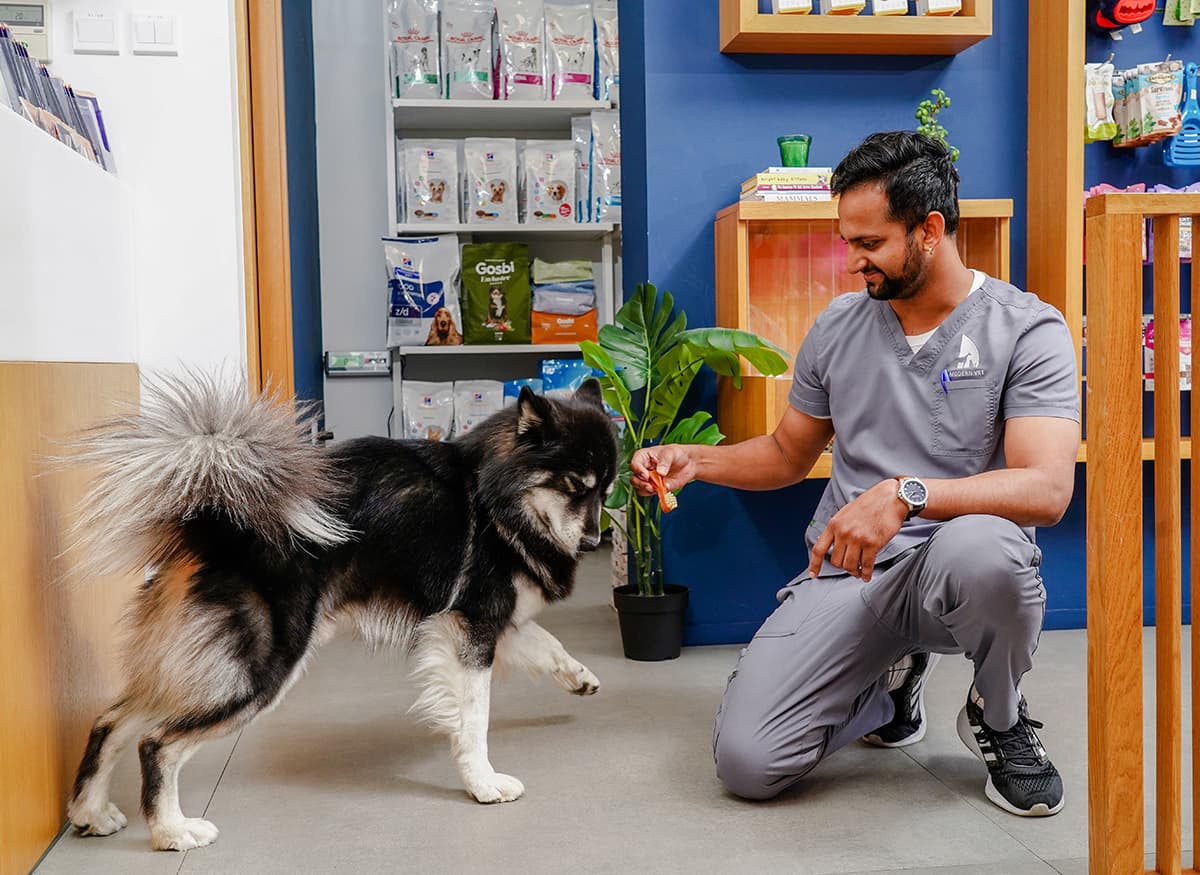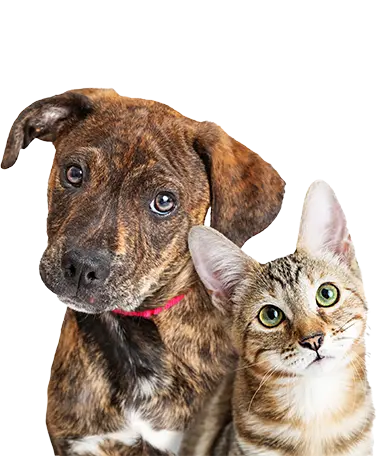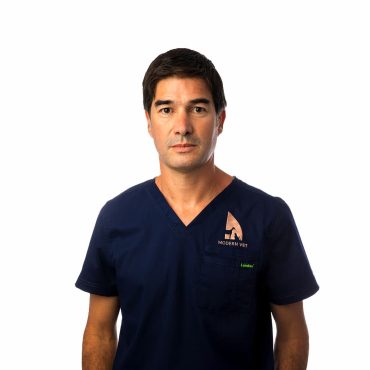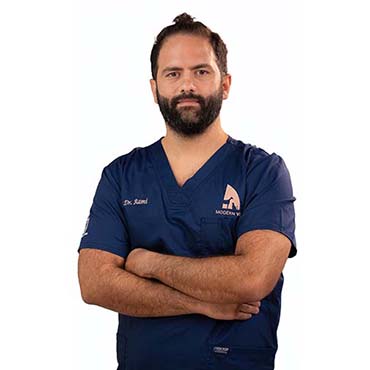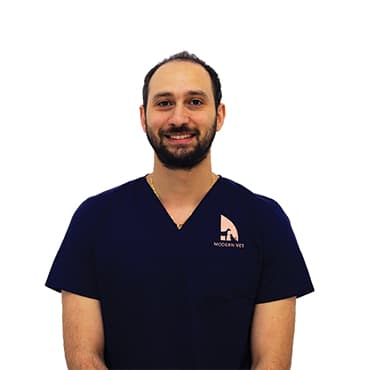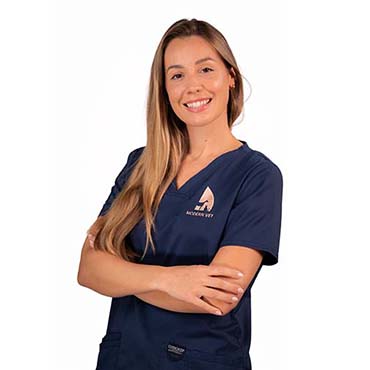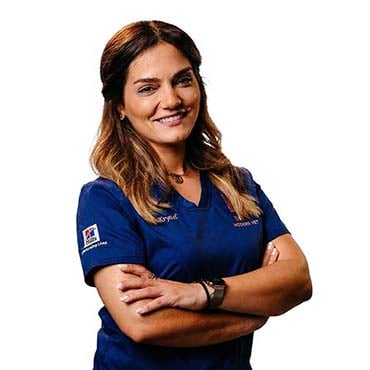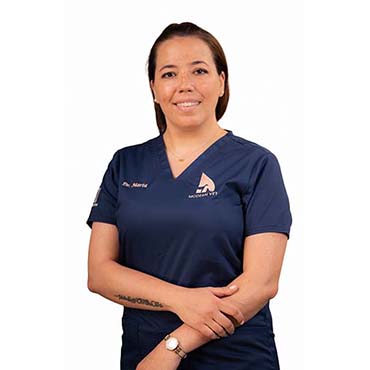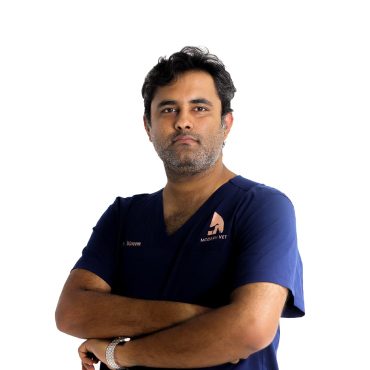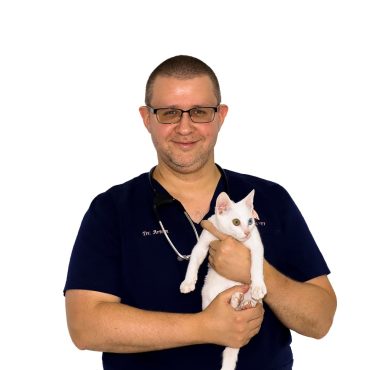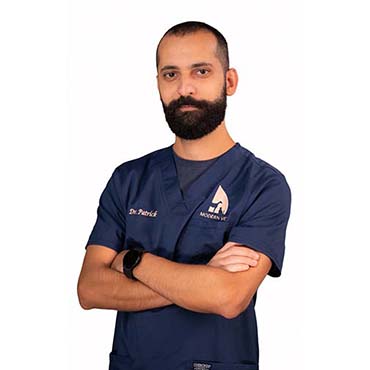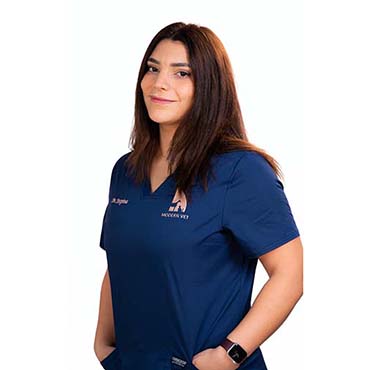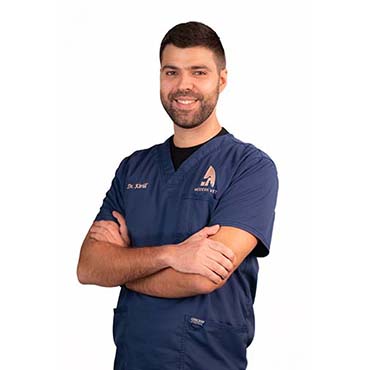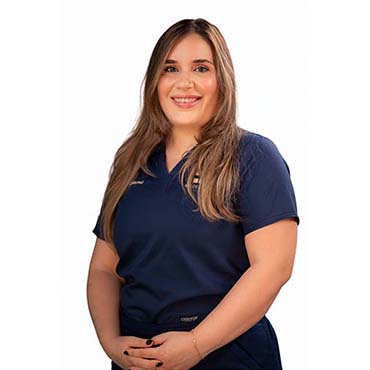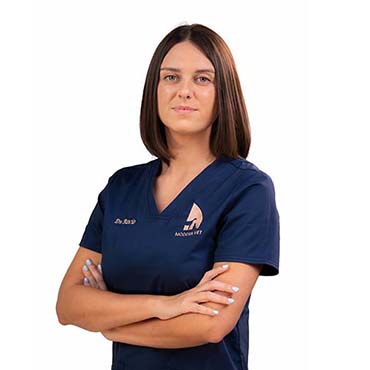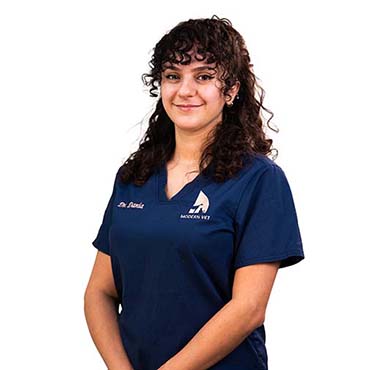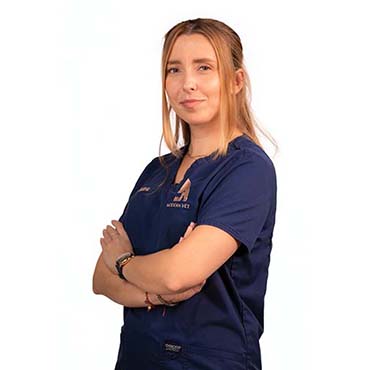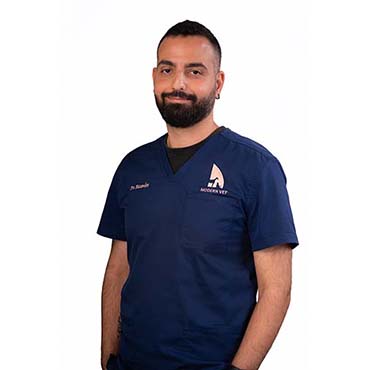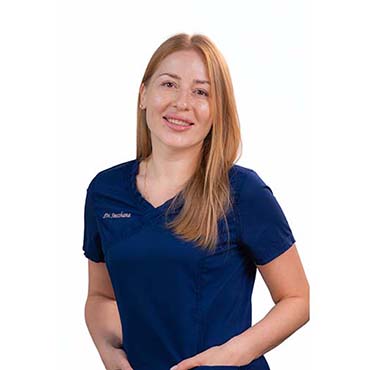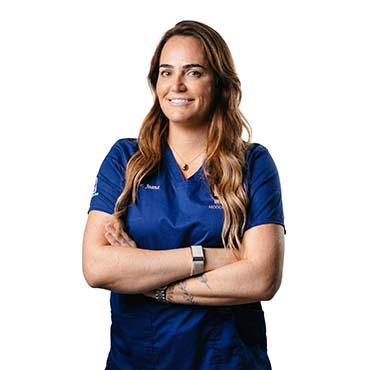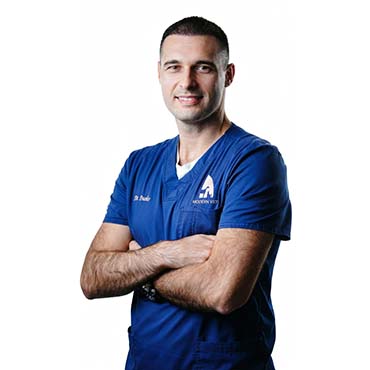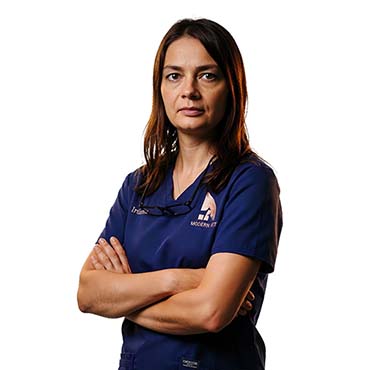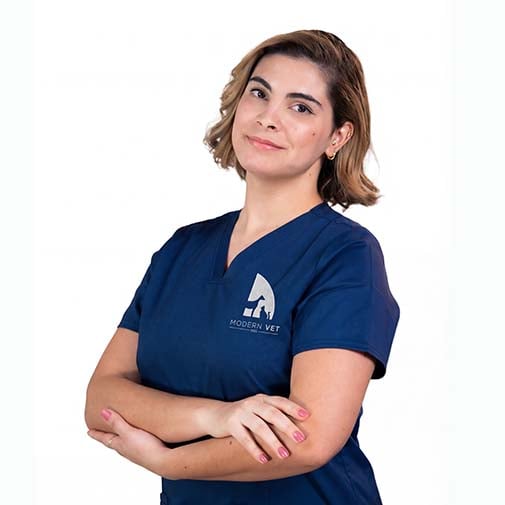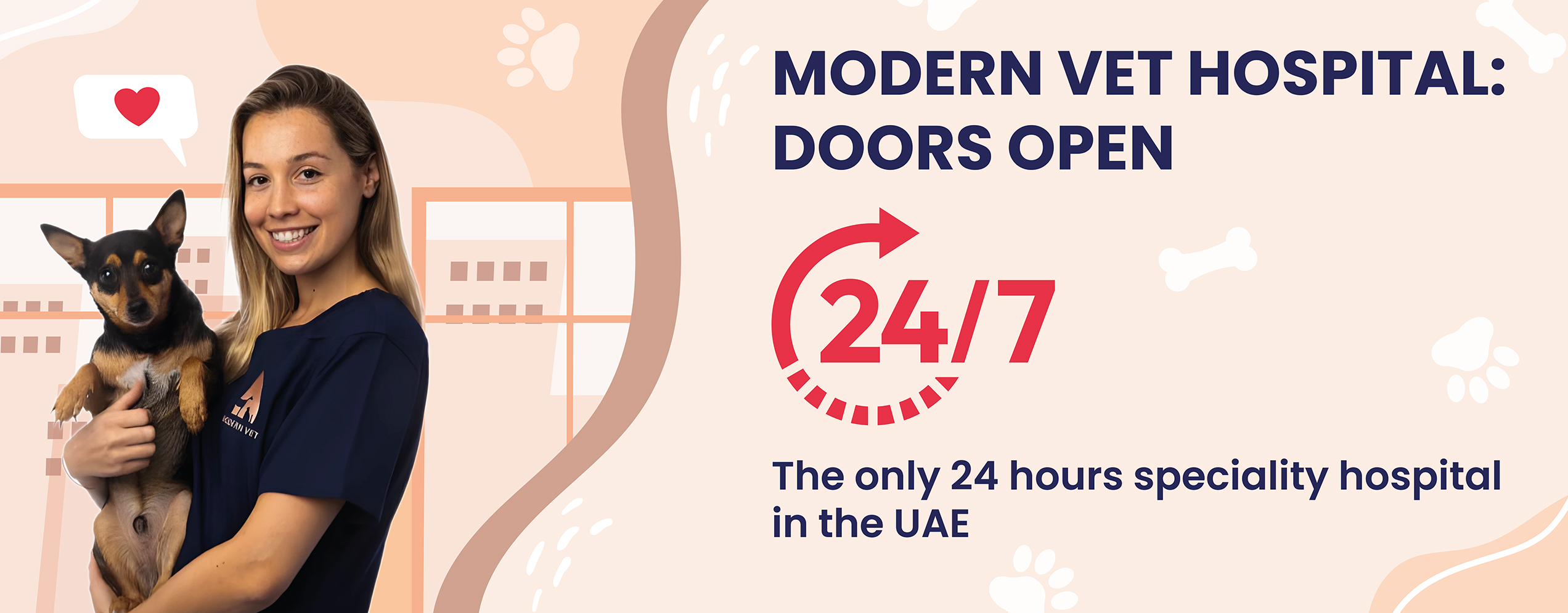Your pet requires proper oral health maintenance for their general health and wellness. Gum disease, tooth decay and infections affect dogs and cats frequently. Many pet owners remain unaware of the serious nature of these problems even when their pets show no visible signs of pain. Modern Vet delivers expert preventive care and treatment through Pet Dental Care services, which utilize modern technology and experienced veterinary dentists for early disease detection.
Our team provides routine dental cleanings and specialized oral surgery services to maintain your pet’s health while stopping disease progression.
Recognizing When Your Pet Needs Dental Care
Your pet’s dental health presents a significant challenge because dogs and cats naturally hide their pain signs. Dental disease progresses through serious stages without showing obvious symptoms because pets naturally hide their discomfort. The first signs of oral disease become visible to owners only after major damage has occurred, since 80% of dogs and 70% of cats develop oral disease symptoms by age three.
Here are additional symptoms and problems that indicate the need for a dental check-up for cats and dogs:
Difficulty Eating or Chewing
Bad Breath
Excessive Drooling
Tumors in the Gums
Pawing at the Mouth
Discoloration of Teeth
Swollen or Bleeding Gums
Bleeding from the Mouth
Loose or Missing Teeth
Difficulty in Picking Up Food
Nasal Discharge and Sneezing
Change in Behavior

Each symptom holds important value because of the following indicators to watch for:
- The presence of persistent bad breath (halitosis) primarily results from bacterial growth in plaque and tartar accumulation. Many pet owners view bad breath as an ordinary pet behavior yet it functions as the first noticeable indicator of periodontal disease.
- The presence of yellow or brown tartar (calculus) on teeth forms when hardened bacterial plaque builds up to create rough surfaces which harbor bacteria that lead to gum inflammation and bloodstream infections.
- Periodontal disease begins with Gingivitis, which stands as its initial stage. Red swollen gums and bleeding gums remain treatable at this stage for effective damage reversal.
- The inability to chew food properly or drop food while eating hard foods indicates either tooth pain, loose teeth, or oral masses. The prolonged condition eventually leads to malnutrition while causing weight loss.
- Excessive drooling combined with mouth pawing typically indicates acute pain or foreign bodies trapped between teeth or ulcers.
- Tooth loss and tooth mobility occur when dental disease advances to a point where it causes bone destruction supporting teeth.
- The condition results in severe life-quality reduction and causes extreme pain to your pet.
- Your pet’s dental pain could cause irritability, withdrawal, and hiding behavior.
- Nasal discharge or sneezing: Sometimes associated with dental abscesses that erode bone and reach the nasal cavity.
Any red flag symptoms demand immediate veterinary evaluation without waiting. Your pet’s life could be saved through a timely veterinary assessment, determining whether they need a basic cleaning or complicated surgery.
Why Professional Veterinary Dental Care is Essential
A good brushing routine and a proper diet at home are excellent preventive tools. Home care methods cannot eliminate all dental plaque and tartar deposits, especially since the most dangerous dental diseases appear below the gum line. The gold standard for maintaining pet oral health requires professional veterinary dental care.
Our dental program provides:
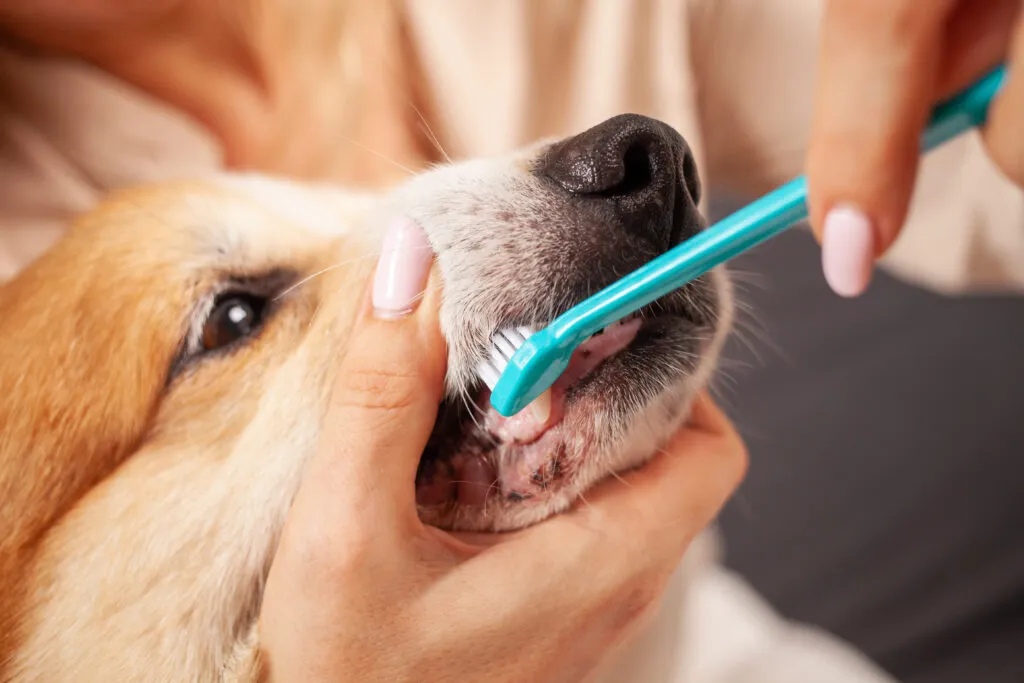
- The full oral examination includes inspecting all mouth areas, including teeth surfaces, gums, tongue and palate, and the space beneath the gum line. Early detection of minor changes enables us to start interventions which stop permanent bone destruction from occurring.
- X-rays: Approximately 60% of dental problems occur below the gum line. X-rays help detect abscesses, fractures, and bone loss, which the human eye cannot observe.
- Professional cleaning (scaling & polishing): All plaque and tartar are removed from the gingival pockets, and the teeth are polished to reduce future plaque formation.
- We employ evidence-based methods to stop dental disease progression and perform extractions for pain relief and infection prevention when needed.
- Preventive advice: We provide you with the most effective home care tools and feeding strategies to help you maintain your pet’s oral health between appointments.
- The failure to receive professional dental care allows oral bacteria to enter the bloodstream, damaging essential organs including the heart, kidneys and liver.
The Vital Role of Anesthesia in Pet Dental Care
A complete dental procedure needs full visibility of all tooth surfaces and sensitive gum pockets, which serve as the starting point for periodontal disease. The procedure needs anesthesia for multiple essential reasons.
The procedure requires anesthesia to prevent both pain and stress in pets because they cannot endure deep gum and tooth cleaning procedures when awake. The procedure becomes completely painless through anesthesia.
- The complete cleaning of all tooth surfaces becomes possible only when the pet is under anesthesia because the destructive bacteria hide below the gum line. The procedure becomes impossible to perform effectively when pets remain awake.
- The precise X-ray positioning requires your pet to stay perfectly still for safe dental radiography.
- The sedation prevents accidental instrument slips and trauma by controlling sudden patient movements.
- The procedure requires surgical interventions, including tooth extractions, gum repairs, and oral mass removals, which need a still patient and sterile conditions.
Before starting anesthesia Modern Vet performs a detailed pre-operative evaluation, including physical checks, blood tests, and individualised anaesthesia plans to guarantee safety for senior pets and those with medical conditions.
The procedure monitoring system tracks heart rate, oxygen levels, and breathing and temperature measurements to maintain pet wellness throughout the process.
Pet Dental Care at Home: Daily Brushing and Beyond
Pet owners must lead in preventing dental disease recurrence after professional treatments. A regular home care schedule enables you to manage plaque accumulation until your next veterinary checkup.
Best practices include:
- Starting dental care for young pets should begin at an early age, but older pets can learn brushing techniques gradually. Pet owners must use toothpaste and brushes which are designed for animals.
- The process of introducing your pet to mouth touch should begin with touch, followed by finger application of toothpaste, before introducing a brush.
- The upper back teeth require special attention because plaque accumulates at this location.
- Choose dental chews and treats that have received Veterinary Oral Health Council (VOHC) approval because they provide safety and effectiveness.
- Brushing with oral gels and water additives is an additional tool to reduce bacterial counts in the mouth.
- Specialized dental diets contain specific kibble textures which help clean teeth when pets chew their food.
- Regular professional dental cleanings should be performed by your veterinarian even when you maintain excellent home dental care to stop long-term damage from occurring.
Services offered at a pet dental clinic include:
Conduct Oral Examinations
Engage in Oral Surgery
Provide Dog Teeth Cleaning
Provide Emergency Dental Care
Offer Veterinary Dental Services
Educate on Preventive Care
Perform Tooth Extractions
Restorative Dental Procedures
Treat Oral Diseases
Orthodontic Solutions
Offer Dental Health Plans
Dental X-Rays

Advanced Dental Services Offered at Modern Vet
The dental care program at Modern Vet provides all oral health solutions with veterinary dental expertise.
- The examination process includes a thorough assessment of teeth and gums and tongue and oral cavity to detect diseases or injuries.
- The dental radiography system produces high-definition images that help detect bone changes, abscesses, and hidden fractures.
- Scaling and polishing remove harmful plaque/tartar while smoothing surfaces to decrease the rate of re-accumulation.
- The extraction of teeth becomes necessary when they reach a point of severe damage or infection that prevents saving them to stop pain and stop systemic illness.
- Treating infections and abscesses requires aggressive care to prevent their spread to other body parts.
- The dental practice offers surgical procedures, including repairing jaw fractures, removing oral tumors, and reconstructing damaged gums.
- The orthodontic treatment provides corrective solutions to misaligned teeth when they interfere with chewing or cause injuries.
- The emergency dental service treats dental emergencies, including tooth fractures and bleeding gums.
- The program provides owners practical education about brushing methods, dietary planning, and dental aid utilization.
Conclusion
Your pet’s overall wellness depends on dental health as its fundamental foundation. Proper oral care is essential for preventing painful infections while ensuring comfortable eating and minimizing systemic health risks.
Modern Vet provides advanced veterinary dental expertise, cutting-edge diagnostic tools, and compassionate care to maintain strong teeth and bright smiles for your pet. Our dental packages and expert staff provide accessible and effective dental care solutions for every pet.
Dental problems should not be allowed to progress into painful conditions that affect your pet’s overall health. Book your pet’s dental examination and cleaning appointment by contacting 800-82 or visiting our Dubai location.
Your furry friend deserves to experience pain-free living with a healthy, happy smile through professional pet dental care.
FREQUENTLY ASKED QUESTIONS
Learn more about "PET DENTAL CARE"
